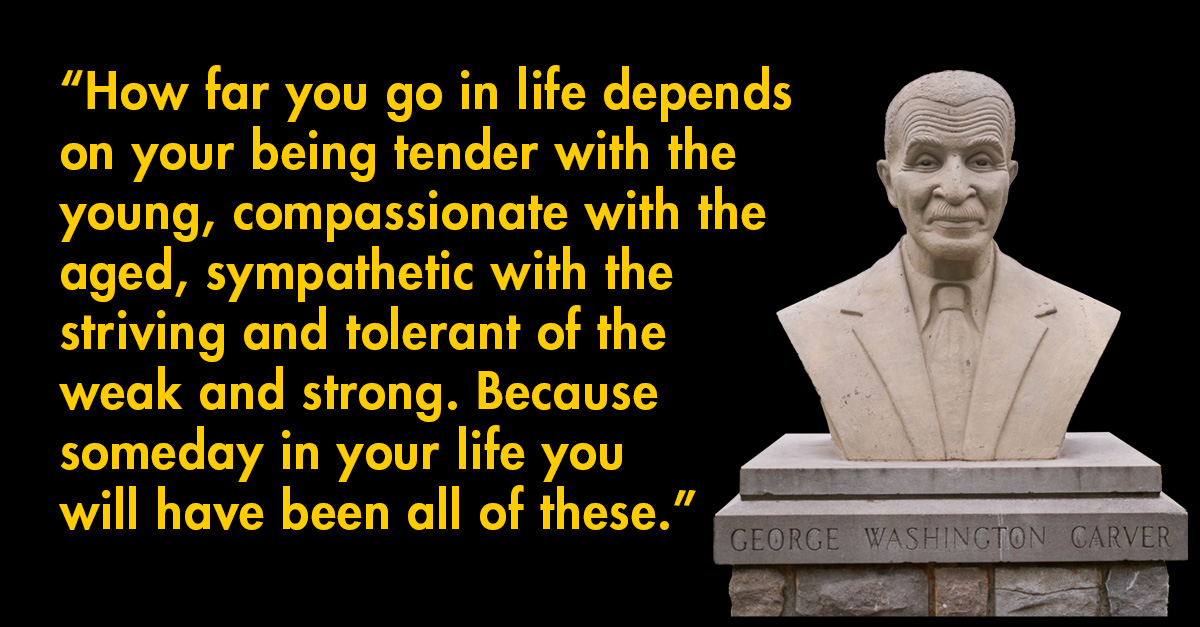George Washington Carver and his impact on Houston Food Bank

George Washington Carver is best known for his advancements and impact in agriculture. Why was he motivated to do this work? His interest was particularly focused on the widespread poverty among farmers in the south, a situation exacerbated by the aftermath of the Civil War.
The South, being highly dependent on agriculture, suffered due to over-farmed crops,which led to the depletion of soil health. Through his work, Carver discovered that by planting peanuts, soybeans and sweet potatoes instead of cotton, those plants would bring back nitrogen into the soil. Nitrogen is important in producing quality cotton. Thus, he pioneered the practice of crop rotation, which involves planting different plants in the same field during consecutive seasons to optimize soil health and crop production.
With the additional growth of peanuts, soybeans and sweet potatoes, he sought to invent practical uses of these crops to help break the cycle of poverty, hoping for a lasting impact on both Black and white farmers. He invented products such as flour, vinegar, cooking oils, paper, cosmetics, soaps, woods and hundreds more. By growing additional crops and teaching farmers how to monetize them, he was able to help farmers overcome debt and poverty.
Carver would continuously focus on helping people and teaching throughout his life. He held free lectures on crop rotation, soil health and nutritious and low cost meals centered around the new crops. He also traveled the world to discuss nutrition in developing nations.
Through his life’s work, Carver made significant advancements that affect food banking today. Through his work in agriculture, food banks benefit from the surplus of crops produced each season. His focus on helping people escape poverty also shines a light on the issue of food insecurity and its root causes. And, his determination to educate others, has given others the knowledge to become self-sufficient and to avoid poverty.
Carver’s focus on helping others who are experiencing poverty is reflected in Houston Food Bank ‘s mission of providing food for better lives and our work in assisting neighbors who experience food insecurity. During Black History month and throughout the year, the Houston Food Bank honors his work in many ways, including through our work in advocacy, nutrition education, and the multiple programs. Learn more below:
The Farm Bill impacts a large portion of Houston Food Bank and how we are able to support our neighbors. Watch the quick video for more information.
Learn more about advocacy in our Action Center.
Nutrition is tied to health. Learn more about Nutrition Education and how eating nutritious foods can help you live a healthier life. And, here are some healthy recipes courtesy of our Nutrition Education team.
We have multiple programs that support our neighbors at different ages.
For children, Kids Cafe participants are as young as infants. Our Backpack Buddy program supports younger school aged children and School Market which supports older school aged children. We also have a Food Scholarship program that helps students in college. In support of our elder neighbors, our partners help provide nutritional foods through the Senior Box program.
Are you interested in finding food? Find a pantry near you.


